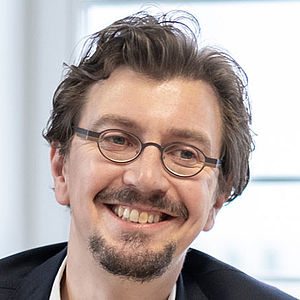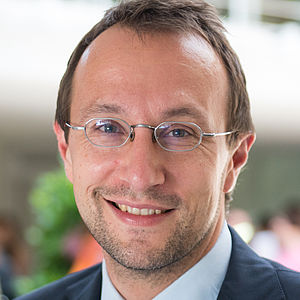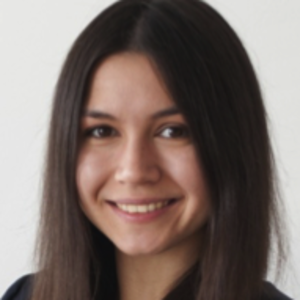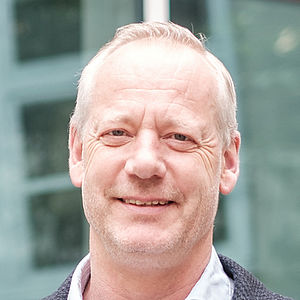Pictured above: Independence monument of Ukraine on Kiev's Independence Square Majdan. Photo: Adobe Stock
Ukrainian guest researchers
The Passau International Centre for Advanced Interdisciplinary Studies (PICAIS) established a fast-track research fellowship for junior and senior researchers in Ukraine threatened by the current war. Details on the application process.
Analysis and interviews
University's position
Contributing researchers

Professor Daniel Göler
Where is the European Union going?
Where is the European Union going?
Professor Daniel Göler holds the Jean Monnet Chair of European Politics at the University of Passau. His research focuses on all matters concerning European integration. Naturally, this involves academic networking across the globe. At the same time, the chair makes European political topics accessible to the general public by organising events and publishing the Jean Monnet Papers.
Professor Ralf Hohlfeld
What challenges for raising public awareness arise as a result of digitisation?
What challenges for raising public awareness arise as a result of digitisation?
Professor Ralf Hohlfeld has held the Chair of Communication Studies at the University of Passau since September 2008. He established the bachelor’s degree programme “Journalism and Strategic Communication” and ran it from 2017 to 2021. He is also the spokesman for the Collegial Management of the Passau Centre for Digitalisation in Society (CeDiS). His research focuses are in the field of empirical journalism research, media change and disinformation in the digital society.
Professor Stefan Katzenbeisser
How can critical infrastructures in a networked world be protected against cyber attacks?
How can critical infrastructures in a networked world be protected against cyber attacks?
Professor Stefan Katzenbeisser holds the Chair of Computer Engineering at the University of Passau. He conducts research on cyber security in embedded systems, on secure critical infrastructures and on technical data protection. He is spokesperson of the new research cluster "ForDaySec - Security in everyday digitalisation", which is funded by the Bavarian Science Ministry and where researchers from computer science, law and sociology have come together to develop new types of technical procedures to provide security in day-to-day digital life. Besides participating in research projects on secure mobility, he is also involved in the research initiative "6G Research and Innovation Cluster (6G-RIC)" which is coordinated by Fraunhofer HHI and aims to develop mobile telecommunication systems of the sixth generation by pushing back the limits of technology.

Professor Robert Obermaier
How can enterprises be steered through a crisis?
How can enterprises be steered through a crisis?
Professor Robert Obermaier is vice-president of research at the University of Passau and holder of the Chair of Accounting and Control. His work is concentrated on the areas of controlling, enterprise assessment, production and decision theory.

Dr. Natalia Poluhin-Ivanusa
How did the ideas of the Jewish Enlightenment spread from Galicia in the 19th century?
How did the ideas of the Jewish Enlightenment spread from Galicia in the 19th century?
Dr. Natalia Poluhin-Ivanusa is a researchers at the Chair of Modern and Contemporary History of Eastern Europe and its Cultures. The historian, who is originally from Lviv in western Ukraine, studied there at the Ukrainian Catholic University and then at the European University Viadrina (Frankfurt an der Oder). She completed her doctorate at the Justus Liebig University in Gießen, Germany. She is involved in a project at the University of Passau where she studies the mobility of Jewish merchants in Galicia of the Habsburg era during the long 19th century and how ideas of the Jewish Enlightenment spread via their international network. Dr. Poluhin-Ivanusa lives in Frankfurt with her family.

Professor Florian Töpfl
How does Moscow influence media audiences abroad using internet-based technologies?
How does Moscow influence media audiences abroad using internet-based technologies?
Professor Florian Töpfl holds the Chair of Political Communication with a Focus on Eastern Europe and the Post-Soviet Region at the University of Passau. He heads the ERC Consolidator project "The Consequences of the Internet for Russia’s Informational Influence Abroad (RUSINFORM)" at the University of Passau. Before Dr. Töpfl was appointed professor at the University of Passau in 2020 he conducted research as the head of an Emmy Noether Research Group at Freie Universität Berlin (2014-2019) and as Marie Curie Postdoctoral Fellow at the London School of Economics and Political Science (2012-2014).

Professor Thomas Wünsch
What defines history and culture in Ukraine?
What defines history and culture in Ukraine?
Professor Thomas Wünsch holds the Chair of Modern and Contemporary History of Eastern Europe and its Cultures. In his research he focuses on the history and culture of Poland, Czechia, Ukraine, Russia, Central Asia and the Balkans. He heads a branch of Südosteuropa-Gesellschaft and the Perspektive Osteuropa initiative at the University of Passau.


















